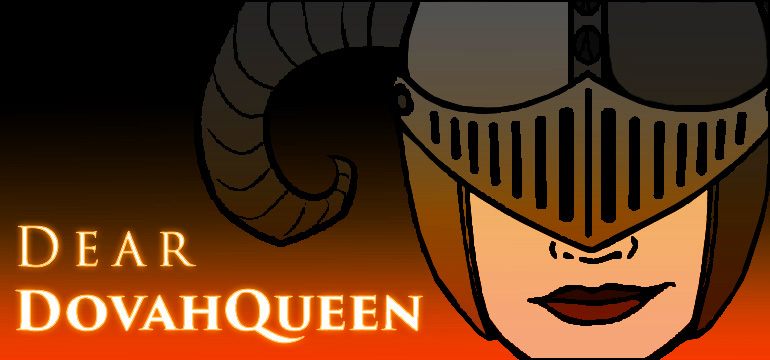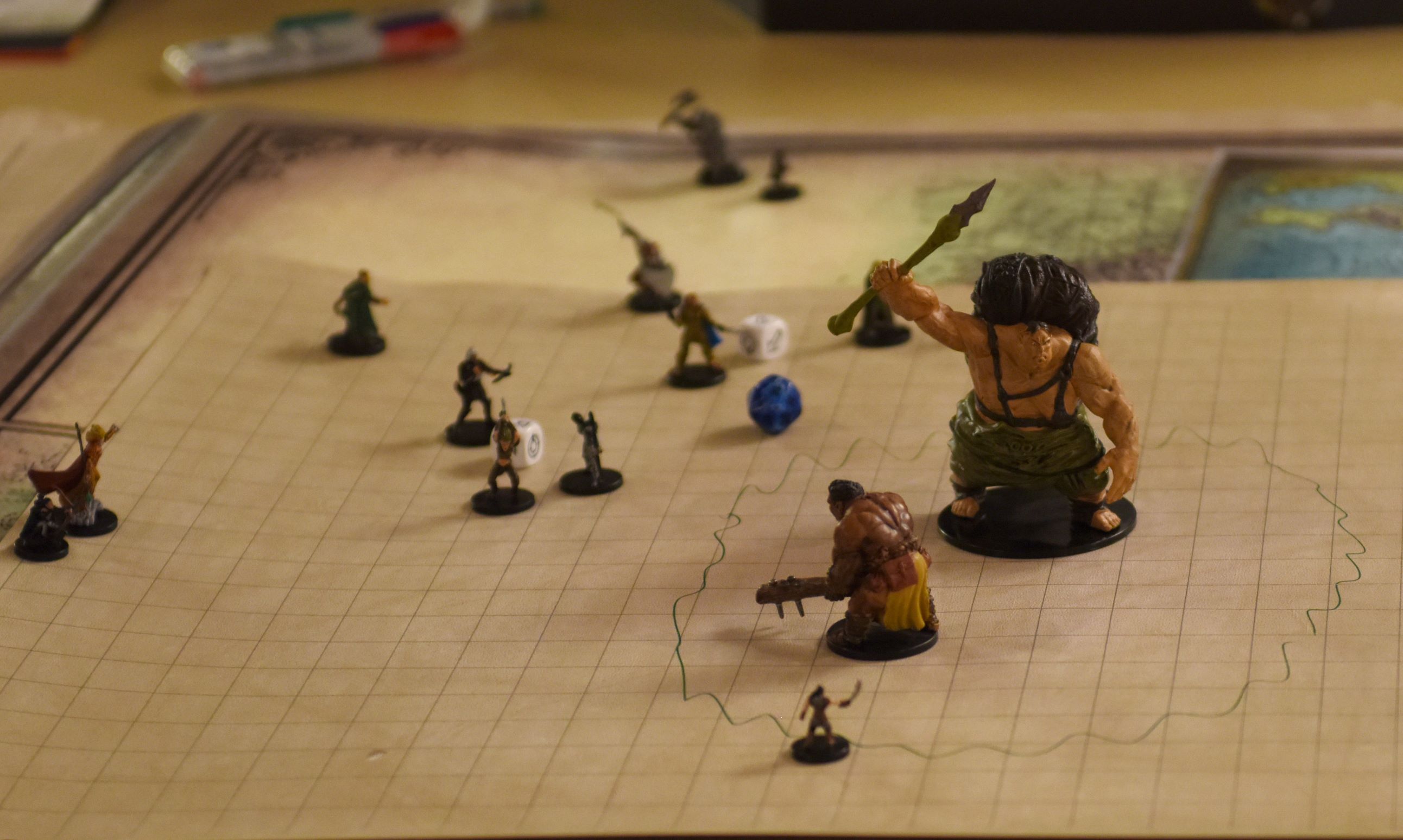It’s hard to imagine a story or game that didn’t have a supporting cast. Today, we’re going to discuss how you can help make your NPCs have more impact in your game.
Dear DovahQueen: How do you make sure to give players an emotional connection to NPCs? To give them a reason to connect to NPCs in order to be able to use them more effectively in games for more emotional reactions?. —Non Player Charmer
Dear Charms: The immersion of your players is one of the most important responsibilities of a GM, and NPCs are one of your most direct tools for reaching your players in the world around them. The amount of interaction the players choose to engage in with an NPC, and how much they get out of it, really revolves around two core concepts. One being the NPC itself and the other being the player’s characters themselves.
The NPC’s relation to the amount of attention they get from the players is normally pretty obvious. If you write a fully fleshed-out NPC, the players will be more likely to care about what happens to them. Do improve NPC writing or the way you perform your NPC for the party, you’ll really wanna think on some of the core features that make any character good. For named NPCs, consider as much as you can about who they are and why they are. If the players enter the Floating Fighter Tavern and are greeted by some soggy half-orc barkeep who’s five o’ clock shadow is as course as his temperament, they’re likely not gonna get a whole lot out of the encounter. This NPC is pretty solidly realized to be no more than a trope. But, if I wanted to use the same core concept of this NPC example, we might make him more endearing if we consider adding some aspects that make him stand out from other half-orc barkeeps.
“Your hand reaches a crusty knob as you go to push the salty wooden door open. Inside, you find a cacophony of drunken merriment as sailors, travelers, dock workers sing songs, dance, and find themselves in lighthearted contests of ale. On the other side of the bar, you see a short man of slight pale green complexion. He spits in a mug, wipes it down, places it on the shelf behind him, and rotates it with a remarkable attention to detail so that it perfectly matches all of the other mugs. You watch as he grabs a guitar, calls one of his servers over to man the bar, and excitedly moves to the stage. ‘ello to all you ruffians, vagabonds, harlots, and knaves! My name is Redder Longshanks and you’ve found your way into The Floating Fighter for a reason. And that reason was to get wrecked! Are you ready to get this party started?!’ “
Here I’ve established this character as a short half-orc with a unique form of OCD, as a musician, and as a showboat. The players will probably wanna talk to him after whatever musical track I play for the scene concludes. Sidenote: it’s probably some acoustic cover of ACDC.
When I say “the other being the player’s characters themselves”, I’m really talking about how much the player’s engage with their own character. A player who feels deeply invested in their own character is going to more deeply engage in the setting and the non-player characters. After creation, this is mostly out of your hands. During character creation though, you’re able to guide and help the players shape characters that have more…well…character! I harp on this subject a lot, because I feel it’s one area that a majority of the community could pay a little more attention to. As a GM, tell your players A LOT about the world that they’re going to be playing in (but do it in bullet points so it’s not overwhelming). Explain to them about the kind of people that come from the part of the world where they will be generally spending their time. Encourage them to be from a region with a well-developed culture, and make sure they know some of the gist of that culture. Help them craft friends and families that will play a role in the story they’re about to take place in. Have them build a backstory that still deeply affects in the character’s current situation. Personally, I like to set a few standards when I start getting my players thinking about who they wanna play. I encourage them to write a single brief paragraph of backstory well before they even begin thinking about classes, skills, and feats. Frequently, I like to require x amount of relationships that the character should have with people around them (friends, family, associates, etc). When the player is involved in their character as this kind of level, you’re more likely to promote a behavior that remains this involved in the rest of the setting.
There are some smaller and easier things you can do as well. For NPCs that I want the players to emotionally invest in, I tend to stand up, walk out their movements, and act out their motions. I had a creepy, noble-born cousin get uncomfortably close to certain players and stand awkwardly behind others while he addressed them. To this day, they remember his name and how much they hated him (which was the goal).
Act them out. Be a ham. Have fun.
You can request RPG advice or send your questions by email to deardovahqueen@gmail.com or on Facebook.





